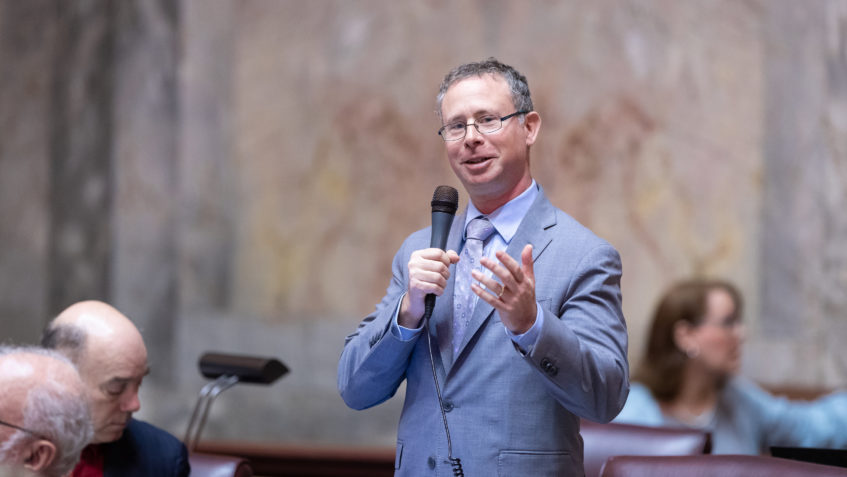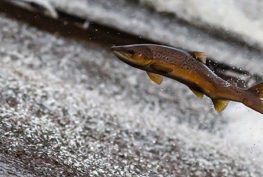Sen. Jesse Salomon (D-Shoreline) has introduced legislation to protect salmon populations from a toxic chemical found in car tires.
Senate Bill 5931 would expedite Department of Ecology review and regulation of the toxic chemical 6ppd-quinone. Ecology would determine initial regulatory actions by June 2025 and adopt rules to implement those regulations by June 2026.
6ppd makes its way into waterways through roadway runoff. Studies have linked it to salmon mortality, and it is the most common killer chemical for coho salmon. The substance can kill coho salmon after only a few hours of exposure.
“The science is as clear as it could be,” Salomon said, “this chemical is killing salmon at an alarming rate. We’re spending billions of dollars to remove culverts which prevent salmon from accessing spawn areas, but this chemical is killing them before they can even make it to those culverts. We need to ensure that we aren’t sabotaging our restoration efforts.”
According to the Environmental Research Institute of the States, 6ppd is the second most deadly toxin to aquatic creatures ever studied. Already, the Institute for Fisheries Resources and the Pacific Coast Federation of Fishermen’s Associations have filed a lawsuit against tiremakers alleging that they are violating the Endangered Species Act by using this known toxin. Additionally, the EPA has responded to a petition submitted by several Native American tribes, stating that it is “necessary to initiate” risk management rulemaking under the Toxic Substances Control Act “to address the risk to the environment from 6ppd-q.”
“Salmon have immense cultural, commercial, and economic importance to our tribal communities,” said Senator Claudia Kauffman, a member of the Land Use & Tribal Affairs committee and the first Indigenous woman to serve in the Senate. “Tribes have already called on the EPA to address the deadly risk posed by 6ppd. We need to do our part in Washington to protect our salmon populations from this toxin.”
“I stand with our tribes in calling for the regulation of this chemical and the protection of our vulnerable salmon,” Salomon said.” We need to make our intent to regulate this chemical clear and let tiremakers know that they need to be working with us to find an alternative substance which doesn’t present such serious risk to our salmon.”
Currently, all vehicle tires contain 6ppd, which makes the tires flexible and slows their degrading. According to Professor Ed Kolodziej, whose team first discovered the toxicity of 6ppd, removing the chemical “from motor vehicle products and focusing on the use of non-toxic chemicals … [is one] of the cheapest and most effective options,” for ensuring the health of Washington’s salmon.
“I’m hopeful that this bill will allow the state of Washington to manage the risk of this chemical and make clear the dire need for a replacement,” Salomon said. “We’ve made important progress on salmon restoration; we need to keep at it and find a way to make our waters less toxic to Washington’s fish.”
The bill is scheduled for a public hearing in the Senate Committee on Environment, Energy & Technology at 1:30 on Jan. 9. You can follow its progress here.



